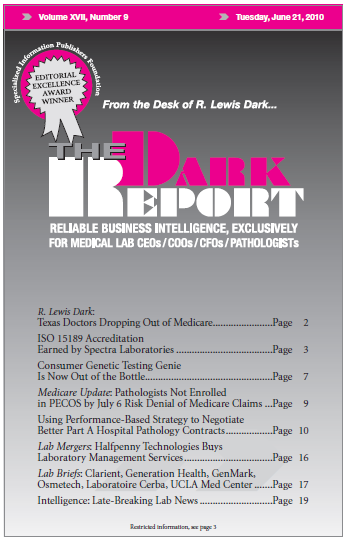CEO SUMMARY: There’s been an uneasy standoff between companies that want to sell genetic tests directly to consumers over the Internet and both state and federal regulators. But now it appears that the FDA is ready to take off the gloves and assert greater control over genetic testing. The agency moved swiftly to challenge six …
Genetic Testing Genie Is Now Out of the Bottle Read More »
To access this post, you must purchase The Dark Report.


